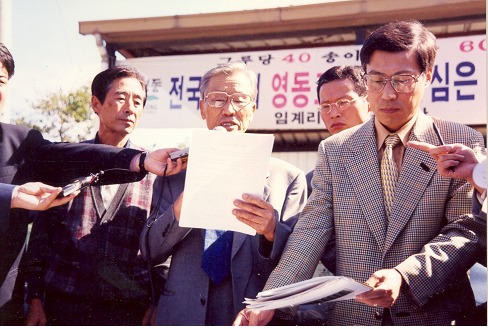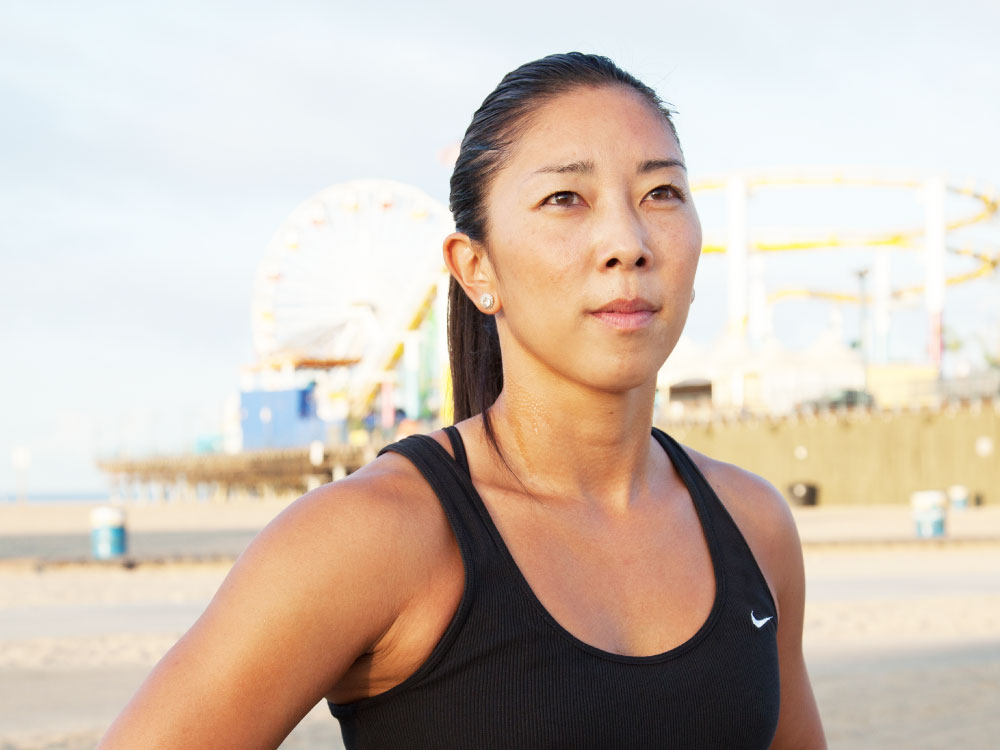by STEVE HAN
In 2001, ex-South Korean policeman Chung Eun-yong brought justice to his two slain children, both of whom were killed brutally by the U.S. Army during the Korean War.
Chung, 91, died last Friday after enduring years of failing health, reports the No Gun Ri International Peace Foundation.
 The killings, commonly known as the No Gun Ri massacre, took place in the first weeks of the war, which lasted from 1950 to 1953. The U.S. warplanes attacked hundreds of South Korean civilians, mostly women and children, outside the central village of No Gun Ri on July 26, 1950 as reports began spreading that northern infiltrators were disguising themselves as southern refugees. Over the next three days, the troops fired at the railroad bridge after the surviving refugees fled under it.
The killings, commonly known as the No Gun Ri massacre, took place in the first weeks of the war, which lasted from 1950 to 1953. The U.S. warplanes attacked hundreds of South Korean civilians, mostly women and children, outside the central village of No Gun Ri on July 26, 1950 as reports began spreading that northern infiltrators were disguising themselves as southern refugees. Over the next three days, the troops fired at the railroad bridge after the surviving refugees fled under it.
Witnesses estimate that 100 were killed by the initial air attack and 300 under the bridge.
Chung, a law student and a former southern policeman, luckily avoided the attack as he left the village earlier, but his 4-year-old son and 2-year-old daughter were killed while his wife was wounded severely but survived.
The survivors were kept silent through decades of dictatorial ruling in U.S.-allied South Korea, but Chung filed a series of petitions to U.S. authorities in the 1990s thanks to the country’s liberalization. The petitions demanded further investigation, an apology and compensation. Chung’s research had concluded that the U.S. troops were responsible for the deaths.
In 1999, after Chung’s petitions were dismissed for years, the Associated Press uncovered declassified files and confirmed that U.S. commanders ordered the troops to kill the civilians in the war zone. Two years later, the U.S. Army and President Bill Clinton issued a statement of regret, but neither the apology nor the compensation demanded by the survivors.
Chung and his group, formed by the survivors, rejected an offer from the U.S. to build a monument at No Gun Ri and a scholarship fund, saying that the Americans are “whitewashing” their responsibility.
The South Korean National Assembly certified the names of 163 dead or missing and 55 wounded in 2005, but the rest of the victims couldn’t be named as two-fifths of the dead were children under the age of 15 whose names weren’t filed.
Chung’s efforts led the formulation of a South Korean investigative commission, which counted more than 200 cases on its docket by 2008. However, the commission was disbanded in 2010 by a new conservative government.
Photo: In October 1999, after release of the Associated Press report confirming the No Gun Ri refugee killings, Chung Eun-yong, leader of the survivors committee, reads a petition in Seoul, South Korea, calling for a “truthful and speedy” investigation. Photo via Wikipedia.







